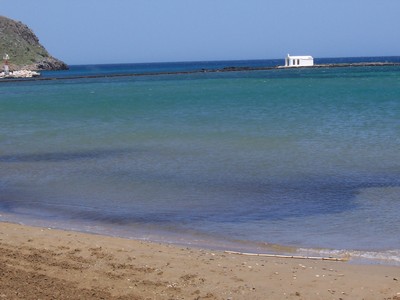Crazy about the Greek island of Crete!
Crete Health Care Advice

This Health Care Advice Page is from the Completely Crete Living in Crete Health Section.
The British Government Foreign and Commonwealth Office in regard to Health Care in Crete and Greece issue the following advice for British tourists:
"The Greek National Health system provides a basic medical service to Greek nationals and it has a reciprocal agreement with the British National Health Service.
The Form E111 is no longer valid. You should obtain a European Health Insurance Card (EHIC) before leaving the UK. The EHIC is not a substitute for medical and travel insurance, but entitles you to emergency medical treatment on the same terms as Greek nationals. You will not be covered for medical repatriation, on-going medical treatment or treatment of a non-urgent nature.
There are many Public and Private Hospitals and Medical Centres in Greece, all of varying standards. Doctors and facilities are generally good on the mainland, but may be limited on the islands. The standards of nursing and after care, particularly in the public health sector lag behind what is normally acceptable in the UK. The Public Ambulance Service, which will normally respond to any accident, is rudimentary. There are severe shortages of ambulances on some islands.
You should seek medical advice before travelling and ensure that all appropriate vaccinations are up to date. NHS Direct (0845 46 47) can provide you with advice on vaccination requirements for Greece.
Travel Health
Holidays are to be enjoyed, whether you are looking for fun, relaxation, action or adventure!
For the business traveller, priorities may be different, but the experience should nonetheless be comfortable and pleasant.
Injury and illness on holiday can be a misery - from painful sunburn to the infamous dodgy tummy - and with no home comforts or familiar remedies; it really can spoil the experience.
The information in this section is aimed at helping you stay safe and well while you are abroad.
General Tips
Buy adequate and appropriate Travel Insurance.
Check what vaccinations you may need with your GP at least six weeks before you travel.
Check if your medication is legal in the country that you are visiting.
If you have a particular medical condition which may require medical intervention abroad (e.g. severe heart disease, pregnancy), it would be sensible to carry a letter from your GP surgery giving a medical summary and details of any treatment or current medication.
If taking certain prescription medication with you (e.g. opiates and controlled drugs) also take the prescription and a GP's letter.
Pack all medication in your hand luggage.
Be safe in the Sun. Avoid excessive sunbathing, especially between 11am and 3pm and wear a high protection factor sunscreen.
Drink plenty of water. If you drink alcohol or take certain drugs your body can become dehydrated, especially in a hot climate.
Practice safe sex - always use a condom. Ensure that you pack a supply before you go as they are not always as readily available abroad and quality can differ between countries.
Find out the local emergency number and the address of the nearest hospital when you arrive overseas. Your tour company representative, local guide or accommodation manager should know."
Want to discover even more of what Crete has to offer?
Explore hidden gems, must-visit spots, and insider tips below!
Just Some of the Reasons We Love Crete
Did you love this page? Please share it with your friends!
© Copyright All Original Content 2006 - 2025 Completely-Crete.com. All
Rights Reserved. Reproduction in whole or in part without permission is
not permitted.
Click here to learn about developing your own money-generating website
from Solo Build It! - even with little or no web experience!























